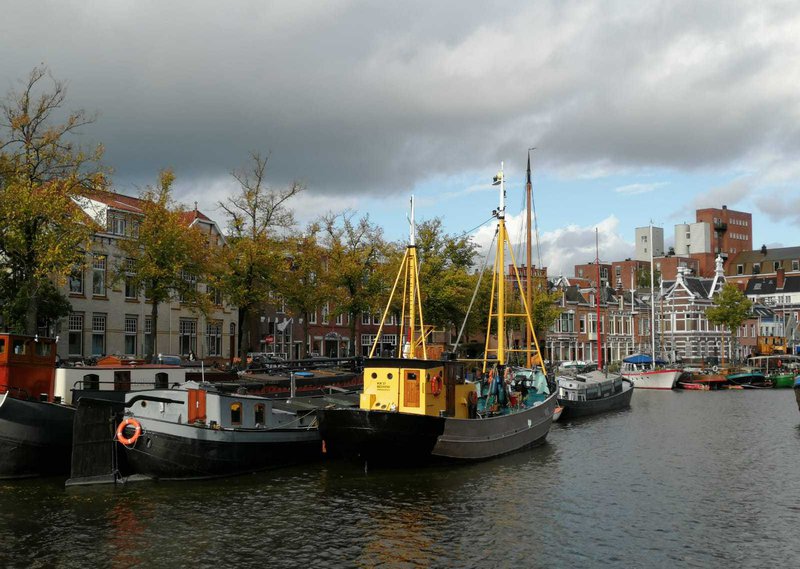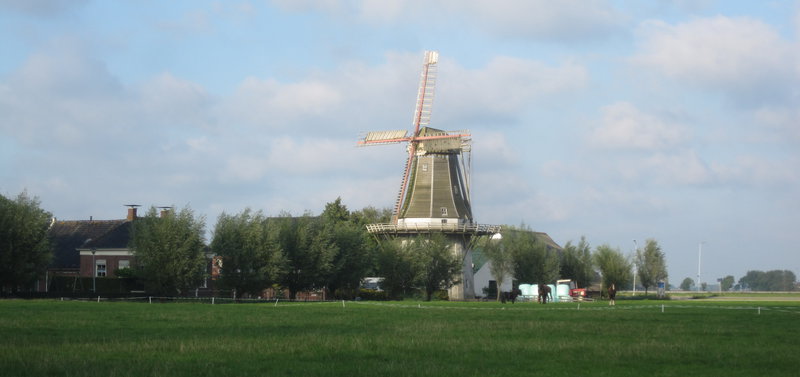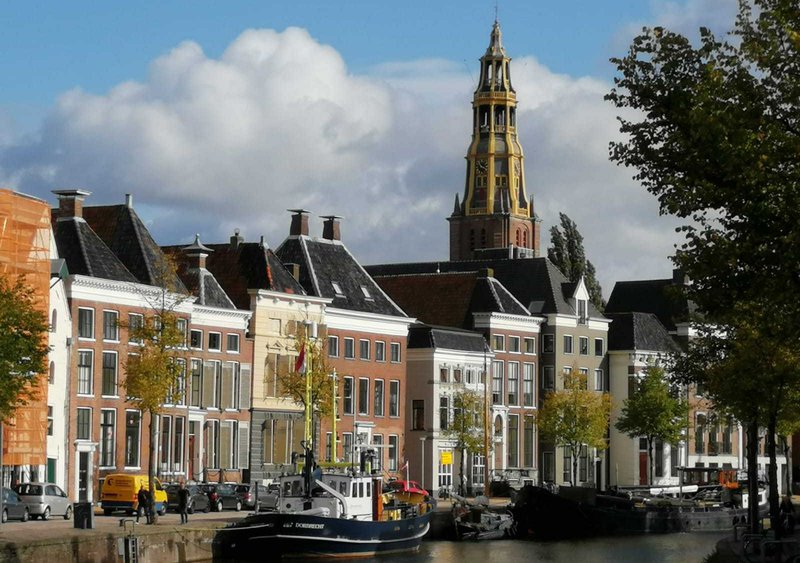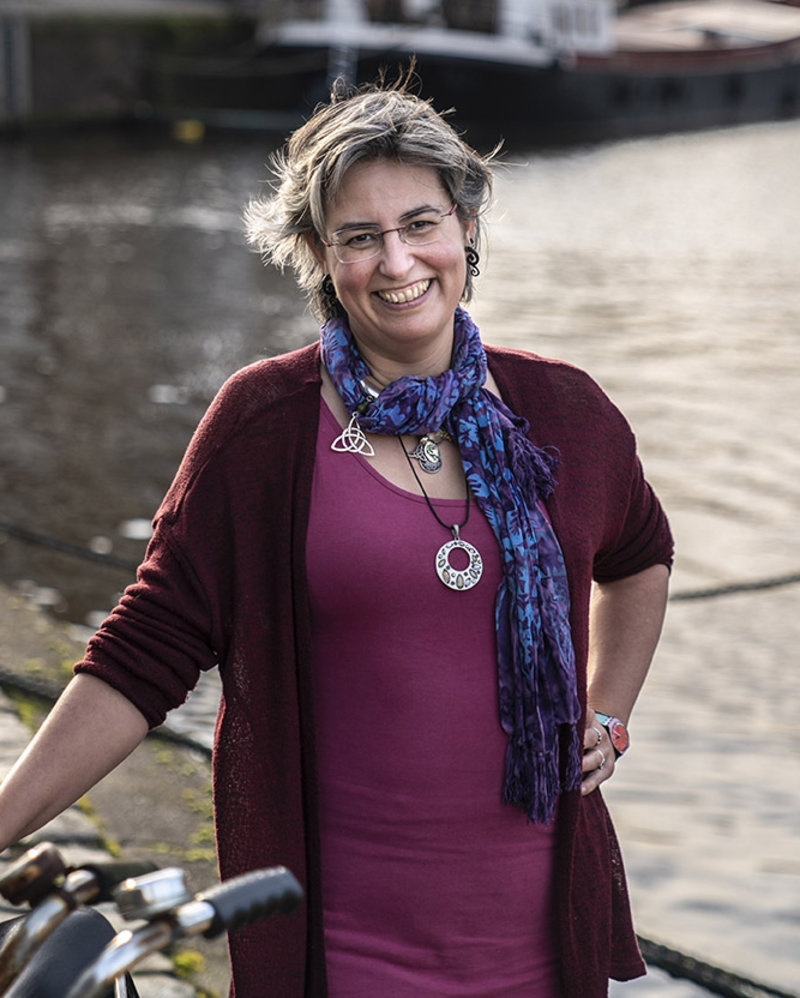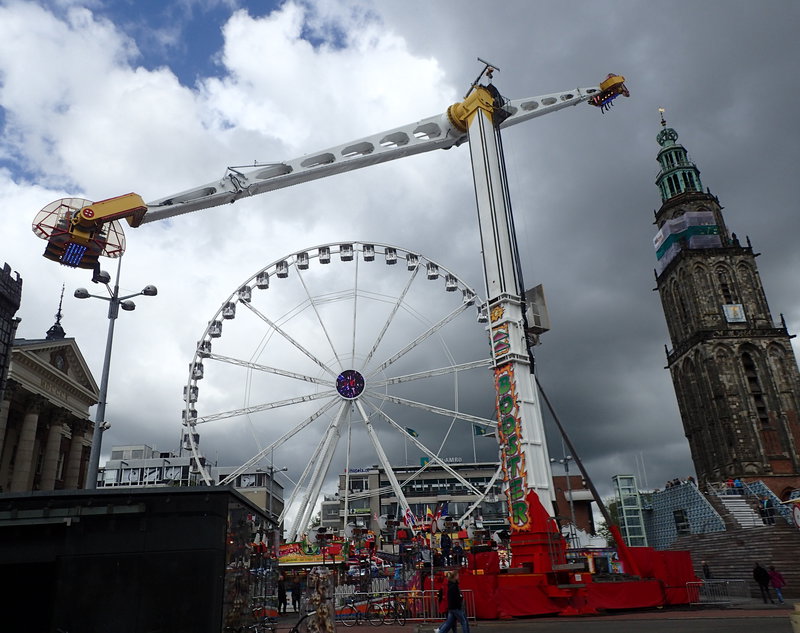Catalans Abroad
Eva J. Daussà
Professor of linguistics at the University of Groningen
”The place chose me”
Why did you leave Catalonia?
I was starting my doctorate, and at that time (early 1990s) there were very few opportunities to get funding to do it in Catalonia, so I applied for a scholarship to continue my research in the USA. To my surprise, I got selected, so I joined an American university. After my PhD in Massachusetts, I started working as a professor in New York, and I stayed there through tenure. I was a very eager student, but truly, I also had a strong desire to see the world and meet different cultures, languages, people, and approaches to life.
Why did you choose Groningen?
After some 20 years living in the USA, I felt I was ready for a change. I had become American, but I also kept strong roots to Europe. My two daughters were of an age (9 and 11) when they would still easily accept a move following their parents, so, even though I had a permanent position and a good salary, my partner, who is German, and me started thinking of going back to good old Europe. When an opportunity came up at the University of Groningen, we took the job and the whole family (including our two dogs) moved to the low lands. As a professor of linguistics, I don’t tend to that get many job offers, so I feel I didn’t choose the place as much as the place chose me. I’ve been here for six years now.
Are you happy with the job opportunities you found in your adoptive country?
I fell in love with the project that was proposed to me, mainly to help establish the new study track Minorities and Multilingualism within the Frisian department. I appreciate a relaxed atmosphere and the acceptance of family and personal lives in the workplace.
What do you think is the best thing about living there?
The Netherlands is a country that takes pride in advancing sustainable and environmentally sound alternatives in all aspects of people’s lives. Biking everywhere and taking the train instead of driving, as well as a generally frugal lifestyle, is part of the Dutch way of living. Dutch people also strive to be tolerant and open-minded; they have managed to be so especially with respect to some topics such as sex, recreational drugs, politics, and religion. I like their relaxed and friendly attitude, especially in a town full of young people like Groningen. While the Netherlands has not been blessed with spectacular nature, there are lovely cities with canals full of ships and boats of all kinds, and narrow, picturesque houses that I find very romantic to stroll or bike by yearlong.
What would you most like to change?
From my daily life, I would like to see a radical change in the use of plastic, especially in the packaging industry. A family of four ends up producing an obscene amount of trash, even if you make a point of buying from the market and bringing your own bags and containers. Fortunately, this is slowly changing, and there is more awareness every day. More deeply, Europe in general, and the Netherlands is no exception, has some work to do examining their attitudes with respect to questions of race and other kinds of diversity, their colonial heritage, or the scandalous practices of the animal exploitation industry. People in the Netherlands take their comfortable standard of living for granted, and oftentimes fail to respond empathetically towards less fortunate situations. Again more trivially, I don’t quite care about Dutch cuisine. But since I cook my own food, this only becomes relevant when I go out to a restaurant.
What do you miss most from home?
I visit Catalonia quite often, and I feel connected otherwise through social media and so forth. If anything, I would like to be able to do more shoulder-to-shoulder work supporting the defence of the democratic freedoms that are currently in crisis there, and that is hard to do from afar. At a more trivial level, I miss mild winter days by the sea, as well as hiking in the Pyrenees -the coastline in the Netherlands is oftentimes rainy and always windy, and there is no vertical dimension in the landscape. From my American home, I miss the feeling of freedom, positivity, and possibility that characterizes all aspects of life there.
What do you take with you as a present from your new home when you go back to Catalonia?
I like bringing people flower bulbs. I know it is kind of a cliché, but the Dutch really have perfected the art of floriculture, and they produce an unbelievable array of flower types. I have also brought cheese, since that is one food the Dutch are sophisticated about. The province of Groningen is next to Friesland, the only region with a recognized official language other than Dutch, and I like to buy little postcards with cute idioms or sayings in Frisian. Likewise, I recently brought a friend of mine a little statue of Grutte Pier, a legendary hero who fought during the Dutch-English attacks on the Frisians, and whom the Dutch describe as a fierce, cruel pirate, while in Friesland he is celebrated as a courageous freedom fighter. I thought it was interesting how each side characterized the same person in those two very different ways, based on the same facts, and with my friend we got a kick out of drawing parallelisms with other examples from current times.
What characterises your neighbourhood?
Probably the most shocking view for the outsider is the hundreds of bikes you can find in all corners of the city, and in great concentrations near the station and the University buildings, since Groningen is a town with a large number of students, and with a committed bike culture. There are a number of eclectic buildings all over the city, but it is when I see the canals, with the drawbridges and the house boats, when I know I am home.
What is the best experience you had in your adoptive country?
I had a wonderful time visiting the vast tulip fields in Spring. Also, I am oftentimes overcome by a feeling of aesthetic pleasure while biking or strolling through the beautiful streets of the city center, through the canal bridges and the narrow streets, taking in the small residential buildings with their big windows, the tiny shops, the boats big and small, and the hundreds of bikers, on my way to work. Of course, I will never forget going to Ameland with my family, flying the kites with the kids at the beach and walking the dunes with the dogs.
Do you plan to go back to Catalonia?
I go to Catalonia several times a year. Settling there, it is not something I am considering at the moment. I value personal freedom a lot, and nowadays there is a climate of repression in Catalonia that I would find very difficult to live with. I think the civic and political movements of the recent times make Catalonia one of the most interesting places in Europe right now, but I prefer to participate in this historical transition from the free space that not living in Catalonia affords me, and hope to be useful at a distance.
groningen the netherlANDS
SOME SUGGESTIONS:
What do you consider the highlights for any brief visit for the first time?
Definitely, I would recommend a stroll throughout the city centre, which is called the Binnenstad. Starting at the train station (because there is no point in coming to Groningen by car), one can go north, making sure not to miss the lovely Folkingestraat street, which has been awarded the recognition of most beautiful commercial street in the Netherlands several years in a row, and it also contains the beautiful Synagogue. The squares of the Vismarkt and the Grote Markt host outdoor markets several times a week, with either food, or antiques, books, and clothes. Of course I recommend the Academie, the most interesting university building, and all the little streets in the neighbourhood. A stroll through the manicured Noorderplantsoen, the beautiful city park, is lovely on a sunny day. People tell me that climbing the iconic Martinitoren in the Grote Markt is worth all the stairs — personally, I am terribly afraid of heights, so I can’t really tell.
And if visitors have more time or make a return visit?
There is a large lake south of the city, the Hoornsemeer, together with its beach and lovely restaurants by the shore. It really is a lovely excursion, and it only takes half an hour to bike there (there are bikes for rent at the station). Also, going to the North Sea islands (Schiermonnikoog is the closest from Groningen, but I have a soft spot for Ameland), is a day trip from Groningen, on the bus or the train, and then the ferry. One can also go to the German island of Borkum, for variety, in the same day. The islands are lovely to walk or bike, with their dunes and long beaches, and their cute villages. Finally, the natural park De Alde Feanen, in neighbouring Friesland, is a delightful mix of forest and marshes.
Can you recommend a place to have lunch with friends?
Dutch cuisine is not the best thing the country has to offer, and lunch particularly is quite unremarkable, since most people just eat a sandwich, a fried snack, or a soup at midday. However, there is a small vegetarian restaurant called Bla Bla, in the Nieuwe Boteringestraat, that I am especially keen on.
Where would you have a special dinner for two?
I’d definitely say the Prinsehof, a 15th-century mansion today turned hotel and restaurant in the Martinikerkhof street. It is an impressive building, and reasonably priced for the quality. Indonesian food is easy to find, because of the colonial past of the country. My favourite restaurant is the Javaans Eetcafe by the canal in Schuitendiep.
What is the best kept secret about the area?
The whole of Groningen is a secret in itself, since the Dutch tend to think that it is in the boondocks of the country, just because it is not in the proximity of the bigger cities of the Randstad (Amsterdam, Rotterdam, the Hague, and Utrecht). Groningen is only about two hours by train from them, but the psychological distance for the average Dutch person is as if it was in the middle of Siberia. That said, for dog lovers like me, the best kept secret is the Sterrebos park, where you can walk your dog off-leash throughout.
Leave a comment
Sign in.
Sign in if you are already a verified reader.
I want to become verified reader.
To leave comments on the website you must be a verified reader.
Note: To leave comments on the website you must be a verified reader and accept the conditions of use.

